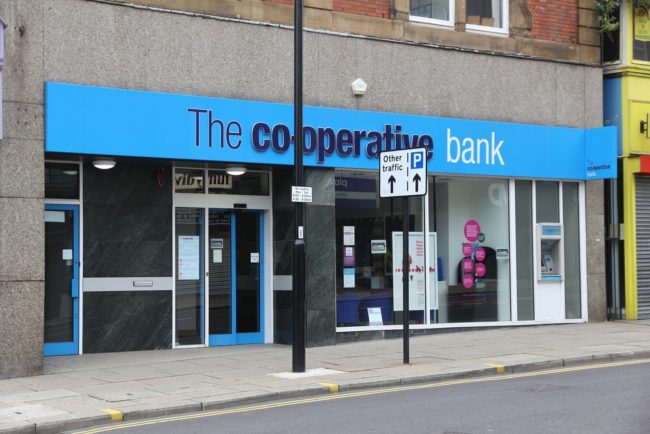A number of US hedge funds came to the rescue of the ethical lender four years ago, bailing it out. The wider Co-operative group still owns a 20 per cent slice of the bank, City AM reports.
Co-operative Bank said it had made “considerable progress implementing its turnaround plan, with a customer-focused retail bank being rebuilt”.
The bank added it had reduced its cost base by over 20 per cent since 2014, sold over half of the original non-core portfolio, and made critical IT improvements. Meanwhile it said it had improved its risk management and operational resilience.
Chairman Dennis Holt said: “We are now commencing a sale process, alongside other options. The bank’s ethical heritage and customer proposition will be a central consideration in this.”
The bank’s chief executive, Liam Coleman, said the turnaround had been hampered by lower for longer interest rates. He added: “Since 2013, we have successfully addressed significant legacy issues, reduced the cost base and rebuilt our franchise and customer proposition.
“The Co-operative Bank delivers an attractive banking proposition that is differentiated by our values and ethics and is highly valued by our 4m customers. Customers value the Co-operative Bank and our ethical brand is a point of difference that sets us apart in the market.”
Co-operative Bank said many of its major legacy issues of the past such as PPI claims “have largely been addressed”.
A spokesperson for the Bank’s prudential regulation authority (PRA) – responsible for the prudential regulation and supervision of the UK’s banking sector – said: “The PRA welcomes the actions announced today by the Co-operative Bank. We will continue to assess the bank’s progress in building greater financial resilience over the coming months.”
Holt added: “The bank has met its Pillar 1 regulatory capital requirements continuously since 2014 and expects to continue to do so. At the same time, since we began work on the bank’s turnaround, the board has always been clear that we would need to build capital for the future.”


